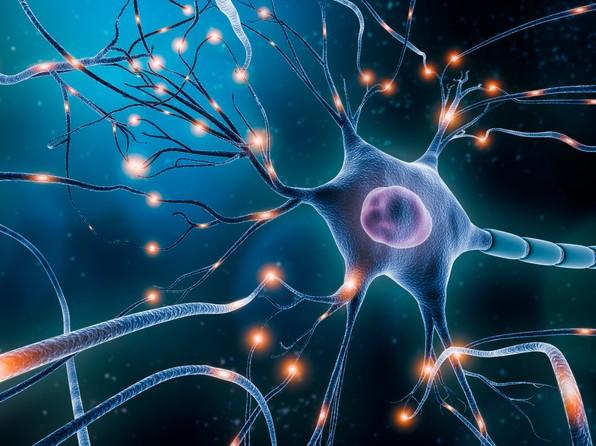A recent Campus resource made several striking assertions about ADHD and digital learning. As a group of more than a dozen students and educators with lived experience of and/or academic interest in neurodivergence, we disagree with the parallels the piece draws between increasing diagnoses of ADHD and the rise of bi-directional media, and in how it generalises digital education as potentially problematic for those with ADHD.
The piece fails to take into account the multitude of digital tools and learning opportunities that benefit people with ADHD, enabling them to develop their unique talents and abilities.
How digital tools can help those with ADHD
Some digital tools, after ample consideration, experimentation and play, can enable people with ADHD to become better learners, educators and researchers. In choosing the right digital tools, ADHD-ers may want to select ones that target organisation, focus, working memory or recall. To give a personal example, I use Obsidian (no relation to the evil-doers in Star Trek) for note-taking because it allows me to hashtag words and link notes to one another to see connections between notes with ease, something that is highly beneficial to my way of processing and seeing information. I found other popular tools, such as OneNote for example, slow, cumbersome and far too linear in nature. As someone with ADHD, I need something that allows me to organise things in many ways that suit me while being readily accessible.
- Spotlight: Champion inclusion on your campus
- Digital accessibility is real and tangible
- For diverse communities to thrive, we need intersectional policies and practices
My experience shows that finding the right tool depends on individual needs and requires experimentation and research to find the best fit. Educators can help their students through this process by signposting digital tools, organisation methods and other strategies they know can be helpful. Ultimately, however, we need to trust individuals to use what they find works best for them. And with ADHD in particular, what is the most helpful tool may change over time, and so we should therefore allow students and colleagues to use the apps or software that fit their needs best, even if they are not supported centrally at your institution.
What helps people with ADHD can be helpful for all
Below are some tactics that can be employed to support students and colleagues with ADHD, however you’ll find that they reflect general good practice for creating inclusive working and studying cultures.
- Seek to understand the specific needs of your students and colleagues. This could be done with a simple questionnaire or by inviting them to submit their needs and preferences to you at the beginning of your working relationship.
- When you’re planning your courses, ensure that you integrate and apply universal design for learning guidelines while providing clear signposting and engaging yet decluttered online environments.
- There is no “one size fits all” when it comes to digital tools so allow people to choose for themselves. Applications that might make learning materials more accessible include text-to-speech or mind-mapping tools; this article provides some suggestions, as does this one, but do remember these are a few examples of many possibilities.
- When creating an online meeting, always add automated scheduling and reminder options, for example through including a calendar invite file. This enables all invitees to add it to their calendar app, allows ease of access to information (the time/date and online meeting link, for example) and reduces mundane daily admin tasks.
- When working on projects, always include links to relevant documents in an email rather than assuming the other person will find it. People are busy, so making the study/work life that much easier helps with inclusivity.
- Allow people to engage in peripheral roles and special interest tasks – or passions, as these may fuel creativity and productivity for all tasks collectively. During times of high workload or stress do not take away these roles in an attempt to lighten the workload. Instead engage with the colleague or student to understand if an additional task should be delegated, or if it offers them helpful motivation to complete that and their day-to-day responsibilities.
While everyone can experience cognitive overload, neurotypical people must not think that everyone with ADHD will inevitably experience it more. This is deficit thinking.
People who experience ADHD may exhibit poor attention to detail, have difficulty sticking to routines, and get sucked into research rabbit holes when their interest is sparked. However, there is a flip side: people with ADHD may also experience hyperfocus or intense and highly productive moments of learning or work. People with ADHD also have an ability to see the bigger picture without getting lost in details and to be impulsive in a creative manner that allows ideas to flow.
A supportive learning and professional environment can enable people with ADHD to use their talents and tap into this creativity. Just like their neurotypical peers, students and colleagues with ADHD are best served by educators and managers who listen to their needs and keep an open, non-judgmental mind about the digital tools they say can support them and help them thrive.
Dustin Hosseini is a learning innovation officer within the Learning Innovation Support Unit and an associate tutor in the School of Education in the College of Social Sciences at the University of Glasgow. He also studies a doctorate in education part-time.
Peers of the University of Glasgow Neurodiversity Network contributed to the ideas and revisions of this article including Stefanie Krauth, Gordon McLeod, Laura Moran, Claire Copping and Rabaha Arshad.
If you would like advice and insight from academics and university staff delivered direct to your inbox each week, sign up for the Campus newsletter.




comment